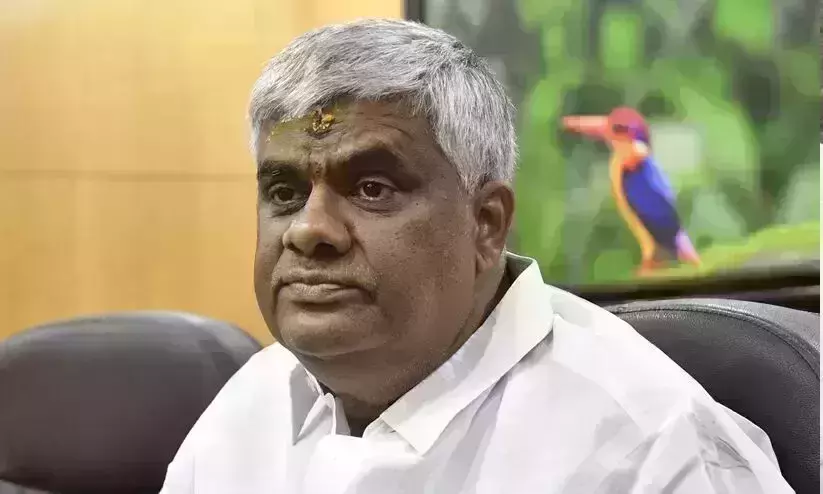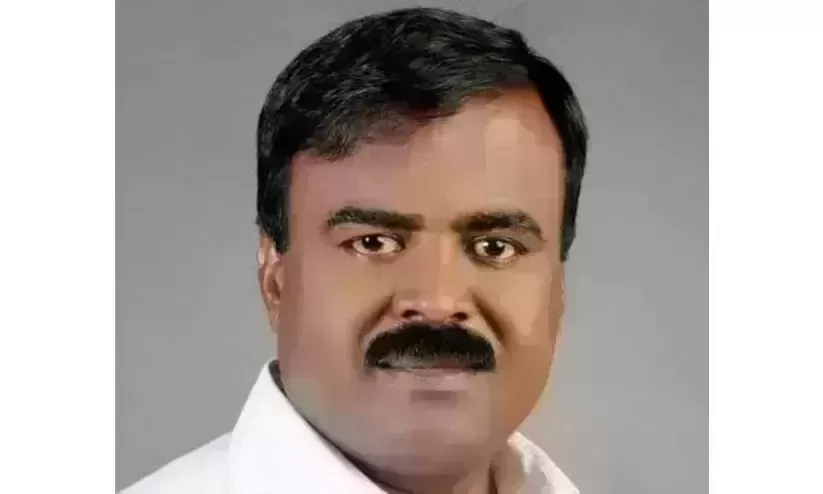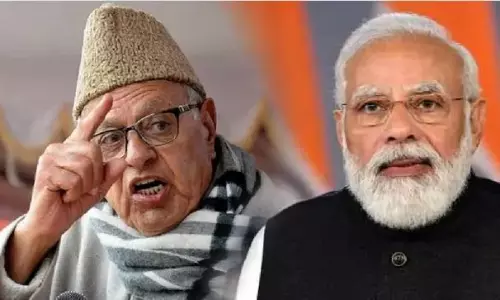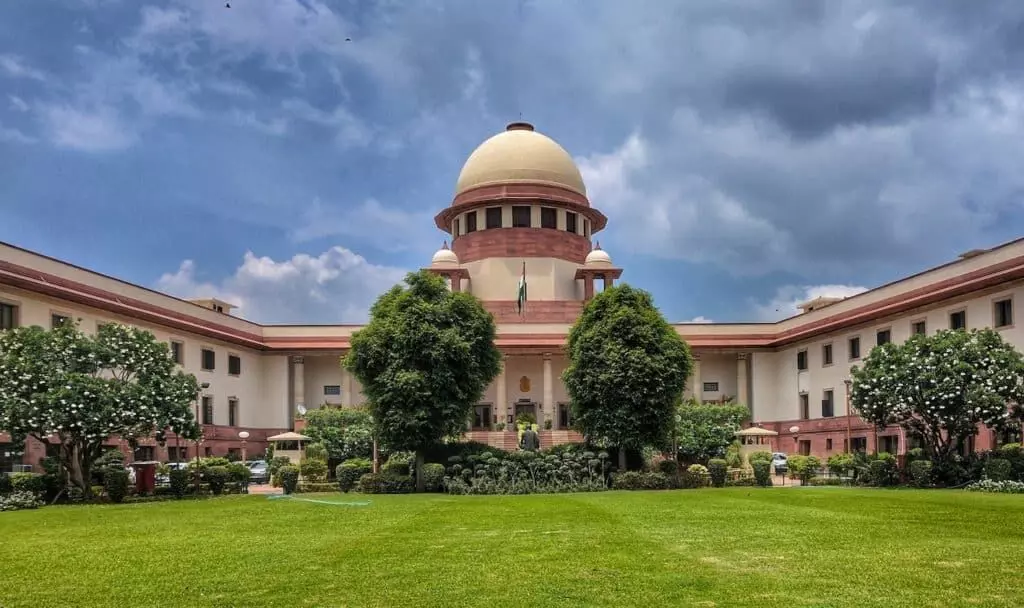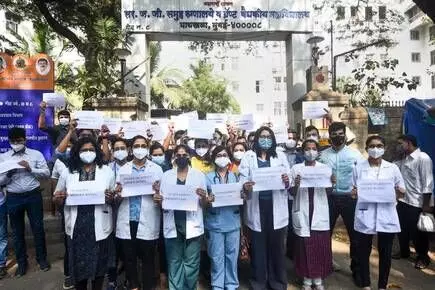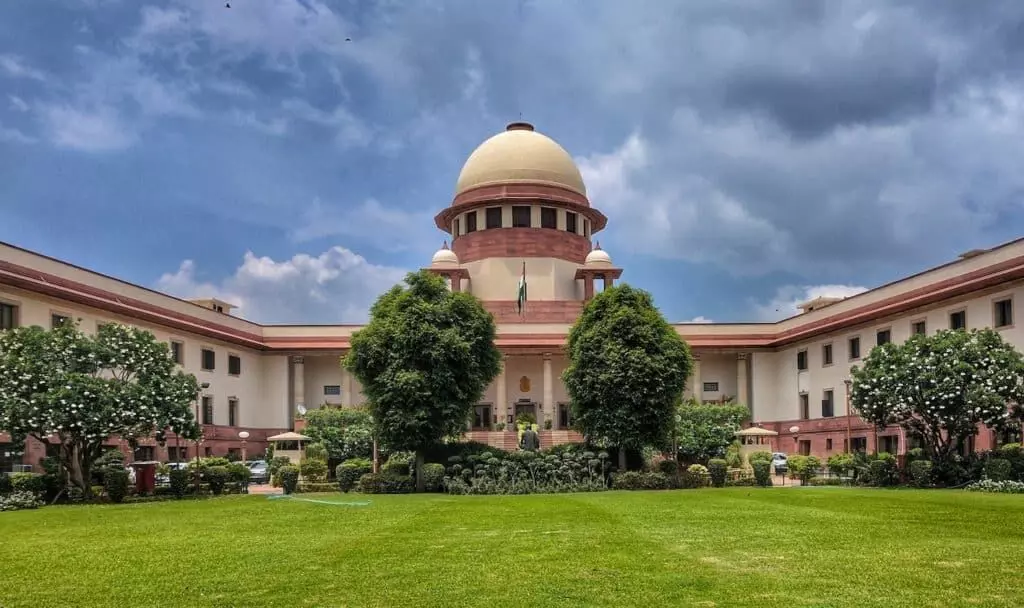
EWS/OBC reservation: SC issues interim order for existing reservation to continue for 2021-22; detailed hearings later
text_fieldsNew Delhi: The Supreme Court on Friday allowed the counselling process for NEET-PG and NEET-UG for 2021-22 admissions under the all-India quota to go ahead as per the existing formula and criteria.
However, the apex court also made it clear that this decision has been taken to not delay the admissions this year pending a final decision on the issues in dispute at the court regarding the criteria for deciding the EWS eligibility.
After the hearings for the last few days on the criteria for deciding the EWS eligible candidates, the court apparently felt that more in-depth review of the points are required to arrive at a firm decision for selections on a permanent basis.
In view of the issues at stake in the medical education of the country, the court issued an interim order granting permission for NEET authorities to accept the recommendations of the Pandey Committee to decide on the counselling this year.
The Pandey committee appointed by the Centre, to revisit the EWS criteria as agreed during late November hearing, had recommended that the criteria which has been stipulated in OM 2019 (for EWS) be used for 2021–22 in order to ensure that the admission process is not disturbed.
The court also ordered that the matter shall be listed for final hearing on the validity of the EWS criteria as recommended by the Pandey committee in the third week of March 2022.
As per the SC order 27% quota will be allowed for Other Backward Classes (OBC) and 10% for Economically Weaker Sections (EWS), the latter generally seen as reservation for upper classes with economic criteria, since this reservation is not open for OBC's.
At issue before the bench of Justice DY Chandrachud and AS Bopanna was the question whether the Rs 8 lakh ceiling for eligibility of EWS category was rational and just. The same income level has been set for excluding OBC's classified under 'creamy layer'. The court had questioned the logic of the decision, and also asked the Centre whether there was any study that the Centre conducted to determine that those who earn income below Rs 8 lakh per year were poor enough to be eligible for this reservation under EWS.
At one point during the hearing on Thursday, the SC bench also asked how the Centre had set the financial criteria in a matter of two days, for the the Constitution Amendment for EWS was passed on Jan 14, 2019 and the Office Memo detailing the criteria was issued on Jan 17.
The bench on Thursday came up with an interim order after hearing extensive arguments by Senior Advocate Shyam Divan, Arvind P Datar, P Wilson, Solicitor General of India Tushar Mehta, Additional Solicitor General of India KM Nataraj and a few intervenors in the case for two days.
The case originally posted for Jan 6, was advanced by a day at the request of the Solicitor General Tushar Mehta who submitted before the bench the consequences of delay, a point the government side pressed further during the hearing, rather than the merit of the criteria for EWS eligibility as such.
Senior Advoate Shyam Diwan also argued that after issuing rules for selection in July, changing them now if the court so ordered, would be changing the rules of the game mid-way. He also argued for reservations to be the minimum for PG seats, in line with an earlier SC verdict.
Senior Advocate Arvind Datar argued that setting the Rs 8 lakh cut-off for EWS would create a wide class and was arbitrary, and was arrived at without adequate study. He further said that a uniform criterion across the country was unreasonable as regional income disparities would change the status in different states. He submitted that if at all EWS was allowed, it should limit it to an income ceiling of Rs 2.5 lakh per annum, the starting bracket of income tax.
Solicitor General Tushar Mehta countered the objections by arguing that EWS did not imply the poor but 'economically weaker section' which was different from the BPL category. The SG also requested the bench to let the NEET-PG counsellilng to proceed this year and to defer weightier matters for later. Mehta also offered assistance to the court in that process at that stage.
Senior Advocate P Wilson appeared for the DMK party, pleading for application of OBC quota in the all-India medical admissions.





